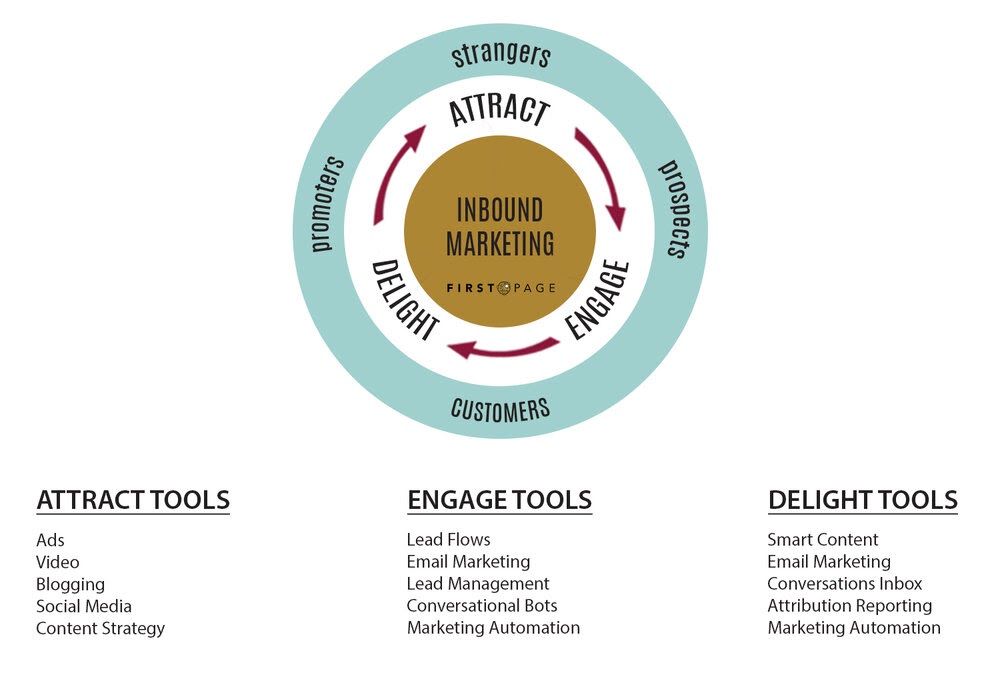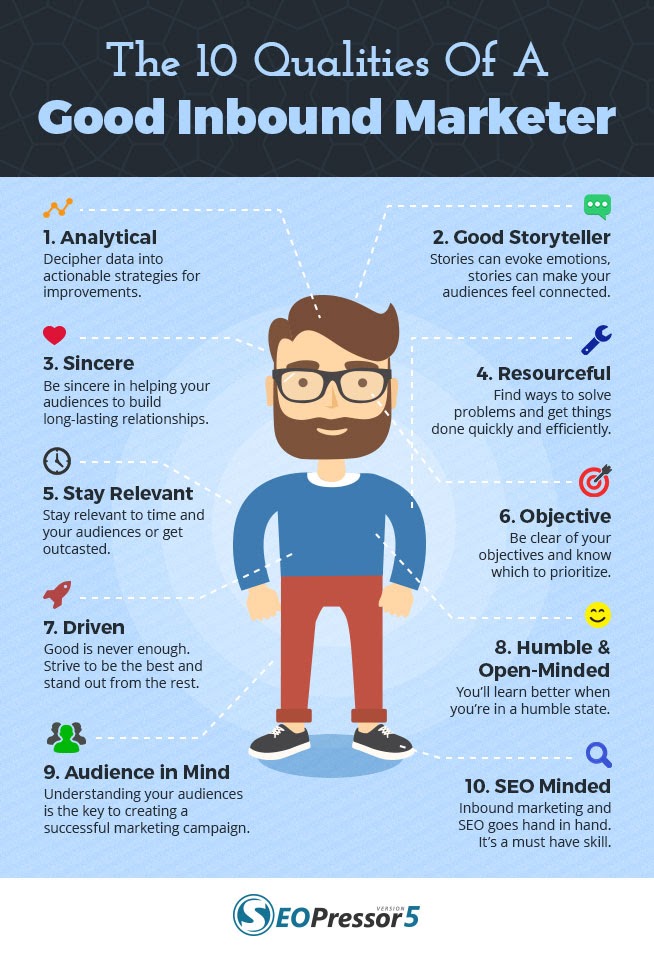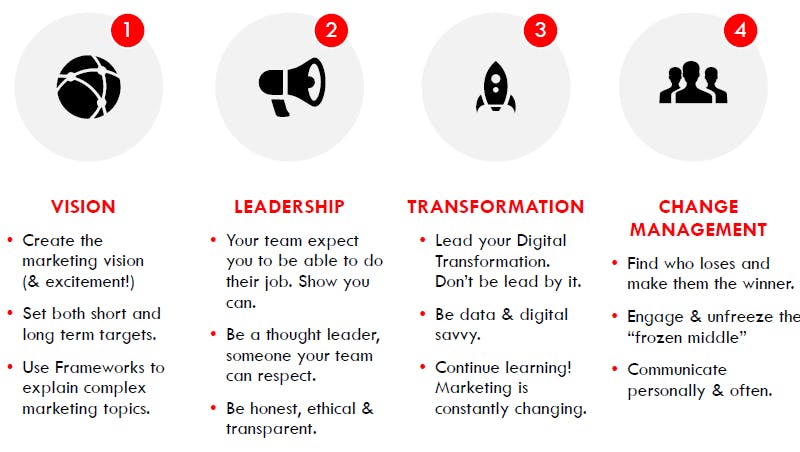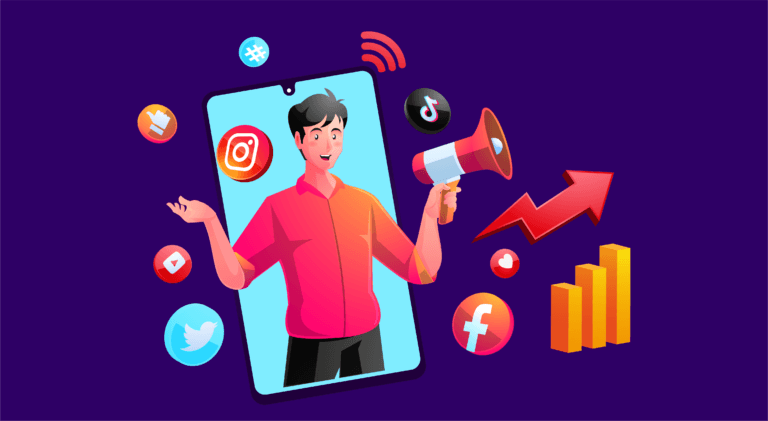
Table of Contents
- What Is an Inbound Marketing Strategy?
- 7 Qualities of an Inbound Marketer
- Key Takeaways
- Conclusion
- FAQs
What’s seen is sold. In the world of cut-throat competition, marketing is crucial to woo the customers with your product, create product visibility, and make it stand out from the competition. The two most common types of marketing are inbound marketing and outbound marketing.
Inbound marketing is more than just sending out information to the public: it is about building relationships with the target audience. Unlike outbound marketing, which pushes a product out in public to make it known to potential customers, inbound marketing draws in potential customers by providing them with tailored content to best suit their needs and demands. Inbound marketers curate content at different stages of the buying process, organically connecting with the audience and solving any problems they are facing. This helps convert prospects into loyal customers.
Inbound marketing not only helps drive quality traffic by reaching the right audience at the right time, but it also provides the customers with all the information they are looking for. This helps build trust among the audience. It is also cost-effective.
What is an example of inbound marketing? In 2016, Cisco, a market leader in networking and IT, launched a branding campaign wherein it featured its customer success stories to demonstrate how the company is driving innovation in multiple fields. This is a classic example of inbound marketing, adopted by the company to widen its visibility and create relatable content for the audience.
What Is an Inbound Marketing Strategy?
Inbound marketing strategies are not only cost-effective, but they also help effectively connect with the target audience. The three specific strategies to grow your business and attract customers are mentioned below.
The inbound marketing methodology is simple.
- First: attract the right people using tools like ads, videos, social media, and content strategy.
- Second: engage with them through email marketing or conversational bots by presenting insights to create lasting relationships.
- Third: delight the audience by providing assistance using chatbots and feedback forms, where they can seek help or information related to the product.

1. Attract
Content is king. Attracting strategies have got everything to do with content creation. Articles, blogs, product guides, and social media posts that add value to the customer’s knowledge, in terms of providing product information, customer testimonials, and details related to discounts, help garner maximum customers.
However, the goal is always to target the right prospects that have the potential to convert into loyal customers. The focus should always be on quality and not quantity. Adopting a robust SEO strategy to optimize all your content can attract the right customers to the product. This helps the content appear organically on the search engine results pages (SERP), when people search about your product.
2. Engage
When using engaging strategies, communication is the key. The communication should be solution-driven, instead of product-selling, in order to build long-term relationships with the audience. The way customer service executives handle inbound sales calls from potential customers play a major role in how the audiences perceive the business.
3. Delight
Delighting inbound strategies are focused on offering effective after-sale services to the customers to ensure they are satisfied and happy, and feel valued even after making the purchase.
This can be achieved by offering prompt and well-timed assistance through chatbots, feedback forms, and surveys, where their queries and concerns are addressed and resolved. Word-of-mouth also works wonders for businesses, and a delighted customer can turn into a promoter and advocate for your business.
7 Qualities of an Inbound Marketer
An inbound marketer designs inbound marketing campaigns, and curates content to attract, engage, and convert leads into potential customers. Donning many hats, an inbound marketer is responsible for campaign management, account management, market research to target the right customers with the right content, analyzing and revising content, social media activities, and customer engagement. Mentioned below are the seven qualities an inbound marketer must have.
1. Motivation
A self-driven marketer is a rare find. Someone who is driven by the passion for marketing and engaging with people proves to be a great inbound marketer, as compared to someone who just considers marketing as a job.
A motivated marketer is humble and open-minded. They are always ready to take up challenges and support their peers to achieve their goals. Motivated and self-driven marketers do not need that extra nudge to complete their goals; they are goal-oriented and come with big career ambitions, ready to put in those extra hours and effort to achieve them.
2. Communication skills

The purpose of communication is to understand and be understood. A strong marketer has to be a good communicator. Confidence and assertiveness in language bring in clarity, and there is less room for confusion and being misunderstood. You must have noticed that an excellent problem-solver is a patient listener. Thus, marketers should be attentive. They should also have exceptional reading and writing skills, and should measure their words while speaking. This facilitates smooth coordination among all departments and avoids confusion.
3. Leadership skills
A confident inbound marketer leads by example. While hiring candidates, recruiters must ensure they have shouldered some leadership roles in their school, college, or previous workplace. A person with leadership skills does not succumb to pressure or put their own interests first. Instead, they are a team-player and work for the organization, keeping everyone’s interest in mind.
4. Lifelong learner
Life is about constantly learning, unlearning, and relearning. No professional is perfect, and one can never learn enough. Some people are naturally hungry for knowledge and want to stay abreast of the latest developments in their field. This is one trait every inbound marketer should look at developing in the initial years of their professional lives. Such people are high performers and are looked up to for guidance by team members.
5. Critical thinking abilities
Marketing does not come with a set of formulas that can be used to solve a problem.
If you ask an employer to choose between an intelligent candidate and a candidate who measures their answers with analytical thinking and not just bookish knowledge, the recruiter will, any day, hire the latter, because when faced with a crisis, critical and out-of-the box thinking comes to the rescue. There are no predetermined rules to precisely carry out marketing activities, because every situation demands a different and fresh approach.
Using critical thinking, an efficient inbound marketer creates content strategy, communicates with the target audience, and delivers the desired results.
6. Ability to take initiative
A good inbound marketer takes charge and drives results. Waiting around to be told what to do is not a quality of an inbound marketer. They are the engine that initiates the entire marketing process. Initiating something new can involve a lot of uncertainty. It might be a failure or even a big hit.

Therefore, an inbound marketer should be open to taking calculated risks, because at times, the road less travelled leads to beautiful destinations. An employee who comes with a risk-taking, problem-solving attitude, and thinks like a business owner and not an employee, is greatly valued. They can contribute immensely to the company’s growth in the long run.
7. Result-orientedness
Good marketers begin by keeping the end in mind. Marketing is all about measuring and evaluating the results of your efforts. An inbound marketer should be goal-oriented and mindful of the activities they are undertaking to drive incredible results for the business.
An adept marketer is well-aligned with the goals of the company as a whole. A marketer who is result-oriented yields more results compared to others, because they devise their marketing strategies depending on the objective they want to achieve through it.
For example: what’s the point in creating a lovely social media post if it cannot generate leads and adequate engagement for the business?
Key Takeaways
- Inbound marketing is not just sending out information to the target audience. It is about building a long-lasting relationship with them.
- The benefits of inbound marketing are many. It is cost-effective, helps effectively connect with the target audience, helps generate quality traffic and leads, and delights customers by providing well-timed, after-sale services.
- The inbound marketing methodology involves attracting the right people using tools like ads, videos, social media, and content strategy. It involves engaging the audience through email marketing or conversational bots by presenting insights. The last step is delighting them by providing after sales assistance when they seek help or information related to the product.
- An inbound marketer is a multitasker. They not only look over social media activities and customer engagement, but are also responsible for effective campaign management, market research, and analyzing content.
- Motivated marketers do not need that extra push to get their work done. They are mindful and goal-oriented from the start.
- The will to learn continuously is one trait every inbound marketer should look at developing in the initial years, in order to achieve greater heights in their career.
- Inbound marketers should never shy away from taking charge and driving results
- Be goal-oriented and begin by keeping the end in mind!
Conclusion
Inbound marketing is based on the idea of connecting with people and building relations with them. For it to happen, inbound professionals need to possess a pleasing personality. They are warm individuals, who value their prospects, and are driven by the desire of converting them into loyal customers.
In an ideal scenario, it is expected that an inbound marketer will have all the above-mentioned qualities and practice them to the fullest. However, these skills are developed over time, with experience and consistent hard work. A professional who brings to the table all the seven qualities of motivation, leadership, excellent communication, critical thinking, result-orientedness, will to take charge, and desire to keep learning, can prove to be a successful marketer in the long run.

FAQs
Marketing is full of surprises; and an inbound marketer, by virtue of their job, faces unexpected challenges every day. Critical thinking and an analytical approach helps the marketer face the curveballs confidently and make quick, informed decisions.
Just planning and curating content by assuming what the audience is looking for will not put the business on the map. Having a robust SEO strategy helps you understand what kind of content the audience is searching for, and helps organize your content, so that it can be easily indexed by search engine bots on the site.
3. Why do most businesses prefer inbound marketing to outbound marketing?
Inbound marketing is the process of preparing interactive content such as blogs, social media posts, and campaigns, which attracts the audience towards the brand. It is not only cost-effective, but it also helps connect effectively with the potential customers. Inbound marketing also drives quality traffic by reaching the right audience at the right time, and in the right place. It provides the customers with all the information they are looking for. On the other hand, outbound marketing involves pushing a product out in public by reaching out to consumers. It may annoy users, and is not too pocket-friendly either.
The five commonly inbound marketing examples are blogs, social media posts/campaigns, chatbots, surveys, and webinars.
Inbound marketing is not just sales-driven. The primary goal of this marketing tactic is to build healthy and long-term relations with the customers.
Marketing is all about reaching the target audience, connecting with them, and converting the prospects into customers. Unless marketers speak the language of the customers and understand their requirements, they will not be able to deliver desired results.
Confidence and assertiveness in communication bring in clarity and reduce chances of confusion and misunderstanding. It also sends across the message that the professional is well-versed with their job.
A motivated employee is humble and is always ready to support their peers to achieve their goals. Self-driven marketers do not need that extra nudge to complete their goals; they are goal-oriented and come with big career aspirations, always ready to put in those extra hours and effort to achieve them.
Visual content like ads, videos, and social media posts are a part of the attraction strategy. These visual aids, if presented properly, can leave a lasting impact on the minds of the customers, and create a strong recall value for the brand as well.
Latest Blogs
Explore how Google’s 2025 AI search updates triggered ranking chaos. Learn actionable strategies to adapt your SEO for AI Overviews, zero-click searches, and SERP volatility. Stay ahead now.
Learn how to rank on AI search engines like ChatGPT, Perplexity, and Gemini by optimizing your content for authority, structure, and relevance. Stay ahead in AI-driven search with this strategic guide.
Explore the best healthcare SEO services for your medical practice. Improve online visibility and effectively reach more patients in need of your services.


